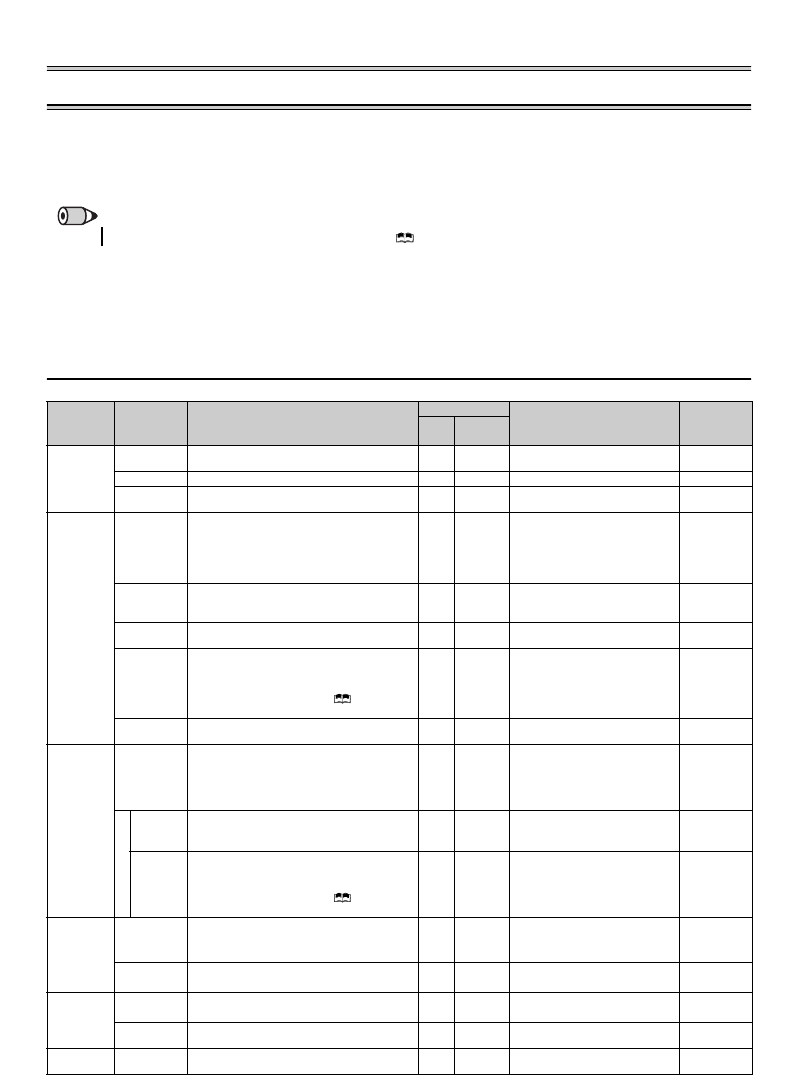
42
Inspection items
9
PRECAUTIONS FOR MAINTENANCE AND INSPECTION
The inverter is a static unit mainly consisting of semiconductor devices. Daily inspection must be performed to prevent any
fault from occurring due to the adverse effects of the operating environment, such as temperature, humidity, dust, dirt and
vibration, changes in the parts with time, service life, and other factors.
zPrecautions for maintenance and inspection
For some short time after the power is switched OFF, a high voltage remains in the smoothing capacitor. When accessing the
inverter for inspection, wait for at least 10 minutes after the power supply has been switched OFF, and then make sure that
the voltage across the main circuit terminals P/+ and N/- of the inverter is not more than 30VDC using a tester, etc.
9.1 Inspection items
∗1 It is recommended to install a device to monitor voltage for checking the power supply voltage to the inverter.
∗2 One to two years of periodic inspection cycle is recommended. However, it differs according to the installation environment.
For a periodic inspection, contact your sales representative.
REMARKS
y For maintenance/inspection and parts life, also refer to the Instruction Manual (Applied).
Area of
Inspection
Inspection
Item
Description
Interval
Corrective Action at Alarm
Occurrence
Customer's
Check
Daily
Periodic
∗2
General
Surrounding
environment
Check the surrounding air temperature,
humidity, dirt, corrosive gas, oil mist, etc.
{
Improve environment
Overall unit Check for unusual vibration and noise.
{
Check alarm location and retighten
Power supply
voltage
Check that the main circuit voltages are normal.
∗1
{
Inspect the power supply
Main circuit
General
(1) Check with megger (across main circuit
terminals and earth (ground) terminal).
{
Contact the manufacturer
(2) Check for loose screws and bolts.
{
Retighten
(3) Check for overheat traces on the parts.
{
Contact the manufacturer
(4) Check for stain.
{
Clean
Conductors,
cables
(1) Check conductors for distortion.
(2) Check cable sheaths for breakage and
deterioration (crack, discoloration, etc.).
{
Contact the manufacturer
{
Contact the manufacturer
Terminal
block
Check for damage.
{
Stop the device and contact the
manufacturer.
Smoothing
aluminum
electrolytic
capacitor
(1) Check for liquid leakage.
{
Contact the manufacturer
(2) Check for safety valve projection and bulge.
{
Contact the manufacturer
(3) Visual check and judge by the life check of
the main circuit capacitor ( Refer to
Chapter 4 of the Instruction Manual (Applied).)
{
Relay
Check that the operation is normal and no
chatter is heard.
{
Contact the manufacturer
Control
circuit,
Protective
circuit
Operation
check
(1)
Check that the output voltages across phases
with the inverter operated alone is balanced.
{
Contact the manufacturer
(2) Check that no fault is found in protective and
display circuits in a sequence protective
operation test.
{
Contact the manufacturer
Parts check
Overall
(1) Check for unusual odor and discoloration.
{
Stop the device and contact the
manufacturer.
(2) Check for serious rust development.
{
Contact the manufacturer
Aluminum
electrolytic
capacitor
(1) Check for liquid leakage in a capacitor and
deformation trace.
{
Contact the manufacturer
(2) Visual check and judge by the life check of
the main circuit capacitor ( Refer to
Chapter 4 of the Instruction Manual (Applied).)
{
Cooling
system
Cooling fan
(1) Check for unusual vibration and noise.
{
Replace the fan
(2) Check for loose screws and bolts.
{
Fix with the fan cover fixing screws
(3) Check for stain.
{
Clean
Heatsink
(1) Check for clogging.
{
Clean
(2) Check for stain.
{
Clean
Display
Indication
(1) Check that display is normal.
{
Contact the manufacturer
(2) Check for stain.
{
Clean
Meter Check that reading is normal.
{
Stop the device and contact the
manufacturer.
Load motor
Operation
check
Check for vibration and abnormal increase in
operation noise.
{
Stop the device and contact the
manufacturer.
